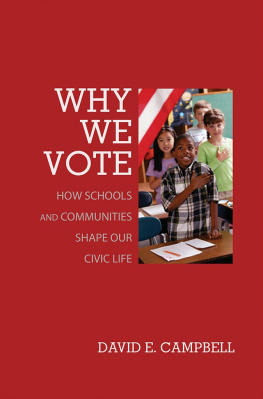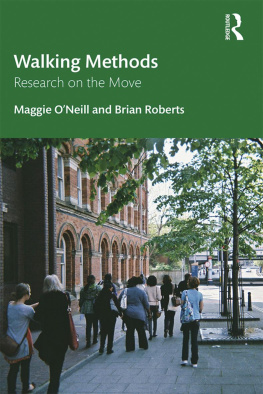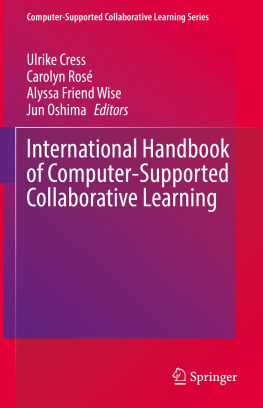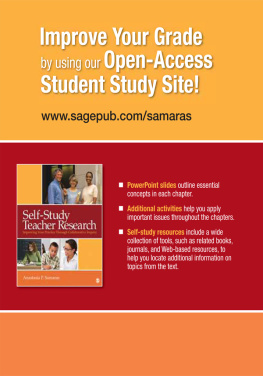First published in Great Britain in 2018 by
Policy Press University of Bristol 1-9 Old Park Hill Bristol BS2 8BB UK Tel +44 (0)117 954 5940 e-mail
North American office: Policy Press c/o The University of Chicago Press 1427 East 60th Street Chicago, IL 60637, USA t: +1 773 702 7700 f: +1 773-702-9756 e:
Policy Press 2018
British Library Cataloguing in Publication Data
A catalogue record for this book is available from the British Library
Library of Congress Cataloging-in-Publication Data
A catalog record for this book has been requested
ISBN 978-1-4473-3332-6 paperback
ISBN 978-1-4473-3330-2 hardcover
ISBN 978-1-4473-3333-3 ePub
ISBN 978-1-4473-3334-0 Mobi
ISBN 978-1-4473-3331-9 ePdf
The right of Elizabeth Campbell, Kate Pahl, Elizabeth Pente and Zanib Rasool to be identified as editors of this work has been asserted by them in accordance with the Copyright, Designs and Patents Act 1988.
All rights reserved: no part of this publication may be reproduced, stored in a retrieval system, or transmitted in any form or by any means, electronic, mechanical, photocopying, recording, or otherwise without the prior permission of Policy Press.
The statements and opinions contained within this publication are solely those of the editor and contributors and not of the University of Bristol or Policy Press. The University of Bristol and Policy Press disclaim responsibility for any injury to persons or property resulting from any material published in this publication.
Policy Press works to counter discrimination on grounds of gender, race, disability, age and sexuality.
Cover design by Hayes Design
Front cover image: istock
Readers Guide
This book has been optimised for PDA.
Tables may have been presented to accommodate this devices limitations.
Image presentation is limited by this devices limitations.
Ryan Bramley is a PhD candidate in the School of Education, University of Sheffield. He is writing a thesis on Filmmaking as a community building practice. He completed a masters degree in August 2016, culminating in a dissertation project, Non-professional poetic representations of the 1984-85 Miners Strike in industrial/post-industrial South Yorkshire a socio-literary comparative study of the poetry catalysed by the Miners Strike, both during that conflict and from the present day.
Deborah Bullivant is an educationalist with over 30 years experience from working across ages, within communities. She is the director of Grimm and Co a not-for-profit literacy charity, based in Rotherham. The group of girls involved in the We come from programme are classed by the wider community as Roma. However, they dont recognise this term and would prefer to describe themselves as being born in their country of origin (in this case, Czech Republic, Hungary and Slovakia) but now citizens of the UK. These girls are aged between 11 and 15 and were co-researchers within this study focusing on autobiographical journeys during times of turmoil and uncertainty for their community in Rotherham.
Elizabeth (Beth) Campbell s interests are in collaborative and community-based research and writing. Her current research explores the constitutive nature of collaborative research, and especially how it works through shared agency, commitment and experience to form and transform those who engage it. She is co-author of Doing ethnography today and The other side of Middletown , and is Associate Professor in Marshall Universitys College of Education in the US, where she teaches qualitative research and educational foundations.
Miles Crompton is a Policy and Partnership Officer at Rotherham Metropolitan Borough Council (MBC) with a remit for research and policy development. Miles graduated with a degree in town planning in 1984 and worked in town planning for 15 years, before moving to corporate research, while working for Barnsley MBC (1989-2005). He became Research Co-ordinator at Rotherham MBC in 2005 and has worked at Rotherham Council ever since. He also served as a councillor in Leeds from 1987 to 1995 and has been a director of South Yorkshire Credit Union since 2002. With 30 years experience in local government, Miles has taken a keen interest in demographic and socioeconomic trends affecting South Yorkshire, and in developing a better understanding of local communities.
Tanya Evans is a mother of two girls, and has lived in Rotherham all her life. She has been actively involved in her local community, local childrens centre and community research for a number of years.
Nathan Gibson is a photographer and filmmaker, whose work focuses on community cohesion, contemporary masculinity and companionship. During the spring and summer of 2016, Nathan worked with a group of young men in Rotherham to create a collaborative photographic project detailing and discussing their experiences of living in the town. Nathan recently moved to Beijing, where he is pursuing a masters degree in multimedia journalism.
William Goulds current research concerns notions of citizenship and state transformation over Indian independence and partition. He is also continuing to research and write on the politics of religious conflict and communalism in South Asia, for which he is currently working on a third book project Religion and conflict in South Asia. He is also working on historical narratives of South Asian migrants to the UK after 1947, as part of a collaborative project with other members of the University of Leeds.
Abi Hackett is a mother of two and a Research Fellow at Manchester Metropolitan University. Her ethnographic research mainly focuses on the meaning making of very young children, and how to understand these collaboratively with parents and families. Before completing her doctorate, Abi worked in the cultural sector, specialising in learning and community engagement, for a number of years, including as Community Outreach Officer at Clifton Park Museum. She is co-editor of the book Childrens spatialities. Embodiment, emotion, agency.







